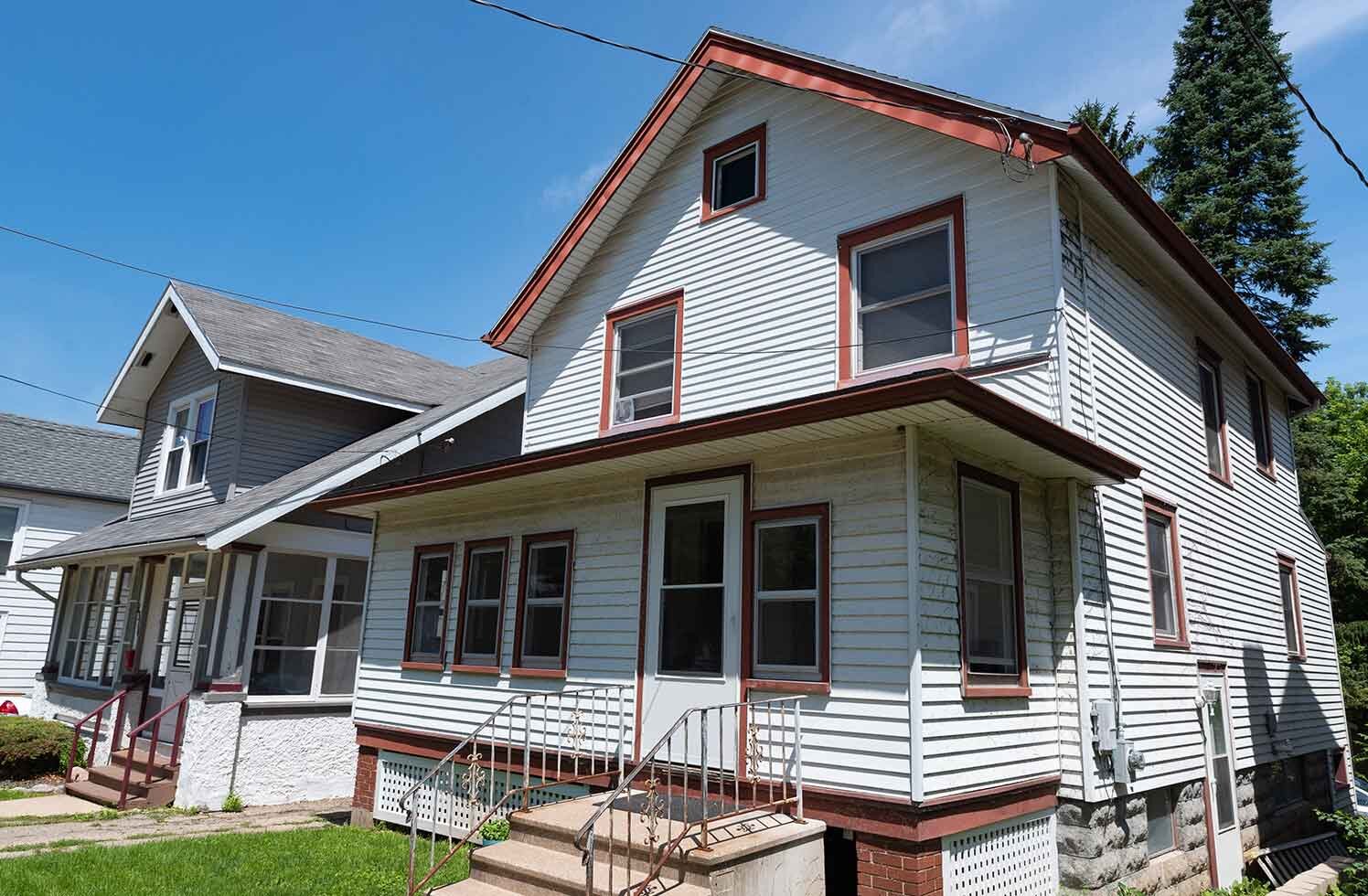Families facing probate situations need straightforward guidance during emotionally challenging times. What essential steps must you take to successfully navigate this complex process? This practical guide is specifically designed for Chicago families dealing with probate properties. We’ll explain everything in plain, honest language—like a trusted neighbor would—and provide realistic advice on maximizing your return while minimizing stress and complications during this difficult transition.
What is a Probate?
When someone passes away, their assets either transfer to beneficiaries named in their will or fall under court supervision if no will exists (known as dying intestate). The estate’s executor or Court-appointed administrator assumes responsibility for these assets. Probate comes in two forms: informal and formal. Informal probate proceeds with minimal court involvement, typically when there’s a clear will or undisputed heirs. This article focuses on the more complex formal probate process, which becomes necessary when the estate faces significant debt, someone challenges the will, or the original will is missing despite evidence one existed. These situations require Court intervention to protect all parties’ interests.
Can a House Be Sold While in Probate?
Yes, absolutely! A property in probate can be sold, though the process depends on how the estate was structured. Three main parties have selling authority: the executor (named in the will to manage the estate); the administrator (appointed by the Court when someone dies without a will); or the Court itself (which manages estates when no qualified heirs step forward). Once inheritance rights are established by the executor, administrator, or Court, the legal heirs or beneficiaries can begin the process of selling the probate property.
What Does it Take to Sell a House in Chicago While in Probate?
The executor’s primary duty is managing the estate’s assets until they can be properly distributed to rightful heirs according to the will. Sometimes, an estate faces substantial creditor debt, or the property has accumulated back taxes or city code violations. In these situations, the executor, administrator, or Court may need to sell the property to satisfy outstanding debts, even when heirs are involved in the decision-making process.
Here’s a practical example: an elderly woman passes away with an executor managing her estate and two heirs. Before her death, she accumulated $90,000 in debt from hospital bills and credit cards. Her home is valued at $150,000, but she has no liquid assets and owes $80,000 to the hospital plus $10,000 in credit card debt. Even after her passing, these debts remain the estate’s responsibility. If the heirs cannot cover these obligations, the executor must sell the house to pay the $90,000 owed. After settling these debts, the remaining $60,000 would be divided between the two heirs.
A property may also need to be sold during probate if the deceased left no will and no immediate heirs. In these situations, the Court might determine that selling the property and distributing any proceeds among distant relatives is the most equitable solution.
Steps for Selling a House in Probate
If you’re managing a IL property caught in probate and feeling overwhelmed about what comes next, you still have practical options. In many jurisdictions, depending on local regulations, selling a probate property can be broken down into four manageable steps. First and most important, ensure an executor or administrator has been officially appointed by the court to act on the estate’s behalf.
As the executor (or with their approval), you’re positioned to make important decisions about the property. Whether the estate needs to settle debts or you’ve inherited a home with city code violations or maintenance challenges, selling might be your most practical solution. Before listing, you’ll need a professional property appraisal. With that completed, you can request court permission to sell it yourself (FSBO), partner with a specialized probate realtor, or sell directly to a bilingual investor like our team who understands Chicago’s complex ordinances and can handle all violations while closing quickly with no surprises or hidden fees.
Decide How to Sell the Property:

Valuation or Appraisal
The first crucial step is determining the property’s actual value. This requires either a property valuation from a trusted local expert or hiring a certified appraiser familiar with probate regulations in your area. Many states require probate properties to sell for at least 90% of their appraised value, making it essential to work with an appraiser experienced in probate cases who won’t inflate the value. An artificially high appraisal can create unnecessary complications and significant delays in the selling process, adding stress during an already difficult time.

Listing the House
After completing the appraisal, you, the executor, and/or your attorney need to submit a notice of intent to sell the property to the court. This document must include the appraised value and your planned selling method. Options might include public auction, traditional listing, or private sale to a specialized investor like our bilingual team that understands older Chicago properties with code violations. Once your petition receives approval, you can begin marketing the property. Whether you choose to sell by owner, hire a probate-experienced agent, or work directly with our team that specializes in resolving Chicago’s unique housing challenges, ensure your partner thoroughly understands both the probate process and local ordinances to avoid unexpected complications.

Offers
When offers arrive, you’ll need to select the one that best aligns with your priorities for this specific situation. This means clarifying what matters most for this sale. Do you need a quick closing to settle mounting estate debts? Are you hoping to wait for a higher offer to maximize inheritance? Is the property in poor condition with code violations that would be better handled by a specialized buyer like our team who can navigate Chicago’s complex ordinances and resolve violations that other buyers avoid? All these considerations influence both the timing and strategy for successfully selling a probate property.
Having a clear understanding of your specific objectives for the sale will guide you toward selecting the right offer – and help you move forward with confidence…

Notice of Proposed Action
When a buyer makes an offer, they must understand that the sale can only conclude after court confirmation. While disclosure laws require transparency about this fact, buyers unfamiliar with probate may be deterred by the extended timeline. This explains why probate properties often get passed over, even when priced competitively. The waiting period frequently leads potential buyers to pursue other opportunities instead. However, if a buyer does come forward with an offer and accepts the timeline constraints, the Court will review their bid before issuing an order approving the property sale.

Bidding
For auction situations, a probate property can be marketed as available before the Court finalizes an Approval to Sale, helping attract more potential bidders. In auction cases, the Court typically oversees the entire bidding process. These sales follow strict guidelines and regulations, making them generally a last resort option for most estates. Once someone wins the bidding, the executor petitions the court to authorize the property sale. However, if any heirs raise objections, the sale may be canceled and the property placed on hold while the Court determines appropriate next steps.

Finalization of Sale
Ideally, selling your house, condo, rental property, or land will be straightforward and smooth. Even if you encountered challenges along the way, once you have a Court-accepted offer, it’s time to finalize the transaction. The executor or attorney will need to file a final account and petition for the final distribution. After receiving Court approval, title documents can be signed, officially completing the property sale and allowing you to move forward.
Who Buys Houses in Probate?
We absolutely do! CVG Properties LLC is Chicago’s only truly bilingual property solutions firm specializing in purchasing homes with city code violations and unique challenges that other buyers avoid. Our transparent process ensures you know exactly what to expect with no surprises or hidden costs. Contact us today for a competitive offer on your probate property – our certified Probate Specialist will handle all complexities while you focus on moving forward. As licensed real estate professionals since 2013, we make the entire process faster and stress-free, even arranging moving assistance prior to closing to provide complete support during this difficult transition.
Get An Offer Today, Sell In A Matter Of Days
Mistakes to Avoid When Selling a Probate Property

Moving Too Quickly
When someone passes away, family members often rush to sell the property to create space for grieving. Or, if the estate faces mounting interest-bearing debt, the executor or administrator might try to sell quickly by pricing below market value to settle accounts. A hasty sale can also happen when the property needs significant repairs or has accumulated code violations that beneficiaries are unwilling to address. They may undervalue the home to facilitate an as-is sale, potentially leaving thousands of dollars on the table that could have been preserved with a more strategic approach and the right partner.

Not Completing a Real Estate Disclosure
Depending on your state, Real Estate Disclosure requirements can be nearly as complex as the probate process itself. These laws mandate disclosure of specific issues (such as lead paint or asbestos) to potential buyers before closing on the property, creating another layer of complexity for executors.
Most states require sellers and their agents to disclose in writing “material defects” about the home. According to the National Association of Certified Home Inspectors, material defects are “…a specific issue with a system or component of a residential property that may have a significant, adverse impact on the value of the property, or that poses an unreasonable risk to people. The fact that a system or component is near, at or beyond the end of its normal useful life is not, in itself, a material defect.”
Experienced real estate professionals excel at navigating these disclosure requirements, but what happens when you’ve inherited a property you’ve never lived in? How would you know what issues to disclose? In some states, executors, sellers, and/or agents may be exempt from completing standard real estate disclosure forms for probate properties. This exemption exists because these individuals didn’t occupy the property and would have no reasonable way of knowing what issues might exist.
If you’re uncertain about your state’s requirements, someone experienced in probate real estate – whether an agent or investor who regularly handles these unique situations – can guide you through these legal complexities. Consider selling directly to a knowledgeable investor like our bilingual team who specializes in probate properties and willingly accepts the risks of purchasing from someone unable to provide complete disclosure. With our extensive experience handling Chicago’s unique property challenges and code violations, you’ll have a trusted neighborhood partner rather than navigating this complicated process alone!

Failing to Hire a Lawyer
We cannot emphasize this enough – a knowledgeable real estate attorney experienced in probate can help you navigate the process much more efficiently than attempting it alone! They’ll know exactly how to petition the Court so you can list that property for sale, and they’ll guide you through each legal step to sell that unwanted house or property with minimal stress and complications. Even a single consultation can help identify potential blind spots in the probate process, especially when dealing with Chicago’s complex property ordinances and code violations that might otherwise create unexpected delays.

Waiting Too Long to Start the Probate Process
When someone loses a loved one, grief may lead to putting everything on hold while processing the loss. But what happens to the probate property during that waiting period? Property taxes continue accumulating, utility bills keep arriving, mortgage payments remain due, and city code violations may result in mounting fines until the property situation is resolved. Delaying too long can cause the estate’s expenses to increase rapidly, depleting available assets and potentially creating a more difficult financial situation for all heirs involved.
Related Articles
Who Buys Houses in Probate?
We certainly do! CVG Properties LLC is Chicago’s only truly bilingual direct house buying company specializing in properties with city code violations that other buyers avoid. Our transparent, no-surprise process ensures you know exactly what you’ll receive before closing. As licensed real estate professionals since 2013 with specialized probate certification, we handle everything—from resolving complex ordinance violations to covering closing costs and even arranging moving assistance prior to closing. Contact us today for a fair cash offer on your probate property and experience the confidence that comes from working with genuine neighborhood experts who communicate clearly in your preferred language while handling the challenges others can’t.

